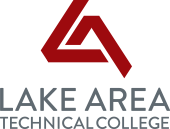LATI Experiences a Dozen Years of Growth
SEPTEMBER 9, 2015 WATERTOWN, SD….. For the twelfth consecutive year, Lake Area Technical College has surpassed its previous fall semester enrollment with a total of 1,846 students. That number is a 7% increase over last fall semester’s enrollment of 1,729 students. The freshman class count is also up at 1087 new students, which is a 6% growth from last years’ incoming group. The overall increase is driven by a strong return of upperclassmen, eleven programs achieving full enrollment, 89 new online E-Degree seeking students compared to 65 at this time last year and a significant increase in Dual Status enrollment.
Lake Area Technical College Director of Student Services, LuAnn Strait comments, “What Lake Area Technical College has accomplished in growth the past twelve years is something few colleges can say they have ever experienced. With the national attention we’ve drawn this past year by receiving the Aspen Prize recognition as one of the top two-year colleges and President Obama delivering our 2015 commencement address, we were fully aware that there could be an influx of interest in Lake Area Technical College.” Strait continues, “The interest was definitely there, but we wanted to make sure we didn’t lose sight of the things that have made us who we are – a college who provides a caring culture for students, hires the best staff, has strong community and industry support, gives students the skills they need to be successful, retains students and makes sure they have meaningful employment upon graduation.”
Lake Area Technical College attributes its growth to several factors: the full-ride Build Dakota Scholarships, 98% placement rate after graduation; the ability to offer programs in high-demand, high-pay fields; the growing popularity of online E-Degrees; and being named a Finalist with Distinction for the 2015 Aspen Prize for Community College Excellence which nationally recognizes the learning outcomes, retention, degree completion, employment and earnings, and success for minority and low-income students.



